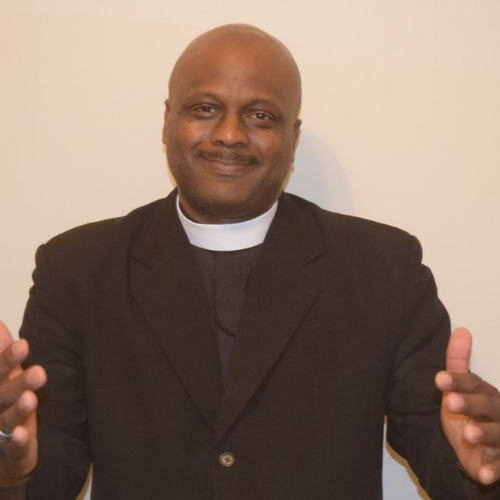-
Leaving Without Receiving
Contributed by Juan Lane on Nov 28, 2017 (message contributor)
Summary: What are willing to do to Receive a blessing from God.
Leaving Without Receiving
Scripture Reference: Genesis 32:24-26 (KJV)
Genesis 32:24 And Jacob was left alone; and there wrestled a man with him until the breaking of the day. 25 And when he saw that he prevailed not against him, he touched the hollow of his thigh; and the hollow of Jacob’s thigh was out of joint, as he wrestled with him. 26 And he said, Let me go, for the day breaketh. And he said, I will not let thee go, except thou bless me.
What are we willing to do that we may receive a blessing from God? Is the real reason that so many people are disappointed with the church today because we are leaving without receiving.
I received a story (supposedly true) over the internet the other day and I would like to share it with you.
No Place for Me
By John W. Fountain
Sunday morning arrived, like so many before, with a mix of sunlight and
chirping birds outside my bedroom window and a warm greeting from my tiny
son, lying beside my wife and me. My wife rose quickly, announcing her plan
to jump in the shower and get ready for Sunday school at the Baptist church,
not far from our house in suburban Chicago, that she and our two children
attend.
As for me, in what has become my ritual nowadays, I turned over and pulled
the covers up around my head. Soon I overheard my 9-year-old daughter’s
familiar question: "Mommy, is Daddy going to church with us?"
"No-o-o-o," my wife replied. After months of my failure to accompany them,
she has abandoned the excuse that "Daddy has a lot of work to do."
Sunday mornings used to mean something special to me. But I now face them
with dread, with a bittersweet sorrow that tugs at my heart and a
headache-inducing tension that makes me reach for the Advil. I am torn
between my desire to play hooky from church and my Pentecostal
indoctrination that Sunday is the Lord’s day, a day of worship when real men
are supposed to lead their families into the house of God.
Once, that’s what I did. I am the grandson of a pastor and am myself a
licensed minister. I love God and I love the church. I know church-speak and
feel as comfortable shouting hallelujahs and amens and lifting my hands in
the sanctuary as I do putting on my socks. I have danced in the spirit,
spoken in tongues, and proclaimed Jesus Christ as my Lord and savior. I once
arrived faithfully at the door of every prayer meeting and went to nearly
every Bible study and month-long revival. I attended umpteen services, even
the midnight musicals and my church’s annual national meetings, like the one
held two weeks ago in Kansas City.
Yet I now feel disconnected. I am disconnected. Not necessarily from God,
but from the church.
What happened? Probably the same thing that has happened to thousands, if
not tens of thousands, of African American men who now file into coffee
shops or bowling alleys or baseball stadiums on Sundays instead of heading
to church, or who lose themselves in the haze of mowing the lawn or waxing
their cars. Somewhere along the way, for us, for me, the church -- the
collective of black churches of the Christian faith, regardless of
denomination -- lost its meaning, its relevance. It seems to have no
discernible message for what ails the 21st-century black male soul.
While there are still many black men who do go to church, any pastor will
admit that there are far more who don’t. Jawanza Kunjufu, a Chicago educator
and author of "Adam! Where are You?: Why Most Black Men Don’t Go to Church,"
contends that 75 percent of the black church is female. The church’s finger
seems farthest from the pulse of those black men who seem to be most lost
and drifting in a destructive sea of fatalism and pathology, with no
immediate sign of the shore or of search and rescue crews. Without the
church, most of those men are doomed. But it seems clear to me that the
church does not -- will not -- seek us black men out, or perhaps even mourn
our disappearance from the pews.
Instead, it seems to have turned inward. It seems to exist for the
perpetuation of itself -- for the erecting of grandiose temples of brick and
mortar and for the care of pastors and the salaried administrative staff.
Not long ago, a preacher friend confided: "The black church is in a struggle
for its collective soul -- to find itself in an age when it is consumed by
the God of materialism."
This preoccupation with the material world is pervasive, and has bred a

 Sermon Central
Sermon Central



